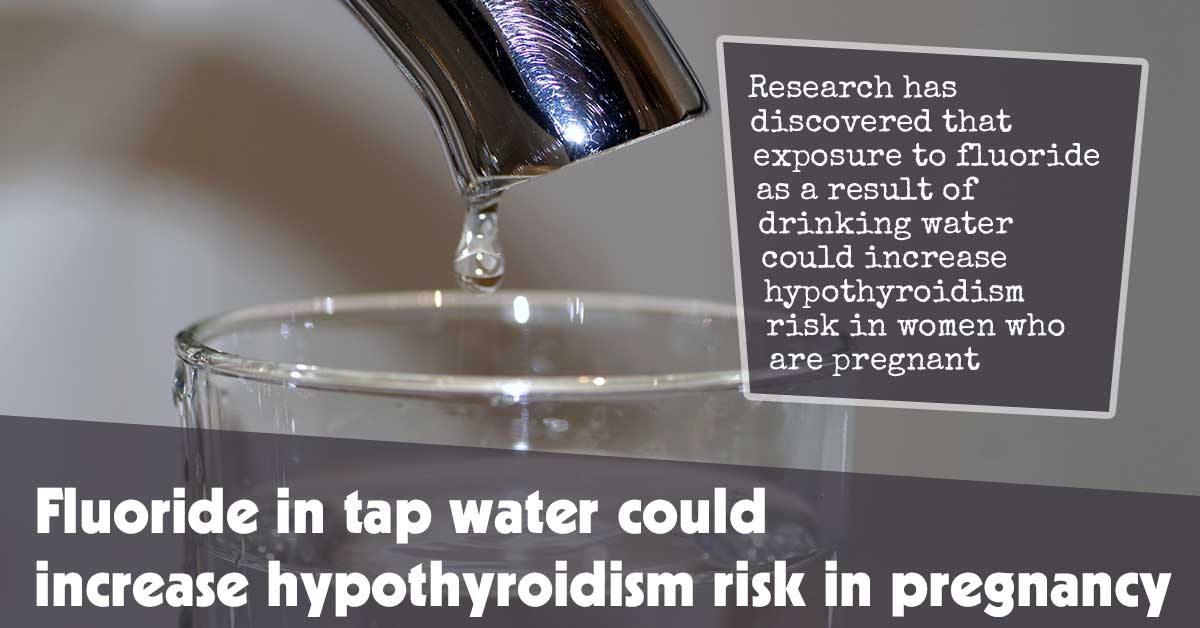Research has discovered that exposure to fluoride as a result of drinking water could increase hypothyroidism risk in women who are pregnant. In a subset of individuals participating in the study, lower IQ scores were observed among boys with mothers having been identified as having hypothyroidism in comparison to boys with mothers having normal thyroid levels.1✅ JOURNAL REFERENCE DOI: 10.1016/j.scitotenv.2022.161149
Previous research identified a connection between maternal exposure to fluoride while pregnant and lower IQs in boys and this current study could explain the results from the previous studies.
It’s known from other research that there’s an association between high fluoride exposure levels and thyroid disruption and there’s also a proven association between hypothyroidism that has been untreated while pregnant and negative outcomes in children.
The latest study could offer a potential process that explains connections that reduce IQs in boys born to mothers having a higher exposure to fluoride and is part of an increasing body of evidence that indicates that prenatal exposure to fluoride could be associated with adverse cognitive outcomes in children.
The study observed over 1,500 women enlisted in a continuing, multi-year study to examine the effect of environmental chemicals on populations that are vulnerable, which includes pregnant women and babies.
Participants were enlisted from 10 different cities, 7 of which have drinking water that’s been fluoridated. Only women who reported consuming tap water while pregnant were analyzed. The women were observed all through pregnancy and their kids were also observed after birth into early childhood.
A half-a milligram/liter increase in fluoride levels in drinking water, which might not seem like a lot, but is about the difference in the level of exposure between a fluoridated community and one that is non-fluoridated, was linked to a 1.65 increase in the likelihood of being diagnosed or meeting requirements for hypothyroidism while pregnant.
This means a 65% increase in risk. The results are of concern because hypothyroidism is a known reason for brain-related disorders in kids.
Earlier research exploring the connection between exposure to fluoride and hypothyroidism has for the most part been carried out with lab animals, and individuals residing in places around the world where levels of fluoride are naturally high.
The thyroid-suppressing capabilities of fluoride have been known since the 1930s when it was made use of for treating overactive thyroid, also called hyperthyroidism.
The process by which fluoride could impact thyroid function isn’t completely clear, although it could affect certain enzymes and the absorption of iodine, which is crucial for the production of thyroid hormone.
Women have a generally higher risk of hypothyroidism, a disorder where not enough thyroid hormones are synthesized by the body which can result in symptoms that include depression, weight gain, and fatigue.
The demands placed on the thyroid system increase significantly while pregnant, particularly in the 1st trimester when the fetus is exclusively dependent on maternal thyroid hormones.
Fluoride exposure from tap water was measured as well as from other dietary sources which include naturally high in fluoride black tea. Urinary fluoride levels were also measured and no connection with hypothyroidism was observed.
The researchers say tap water fluoride levels could be a more reliable indication of long-term exposure to fluoride compared to urinary levels, which could better show a relationship with short-term exposure.
Fluoride compounds are put into tap water to reduce the risk of cavities and this is a significant source of fluoride exposure.



